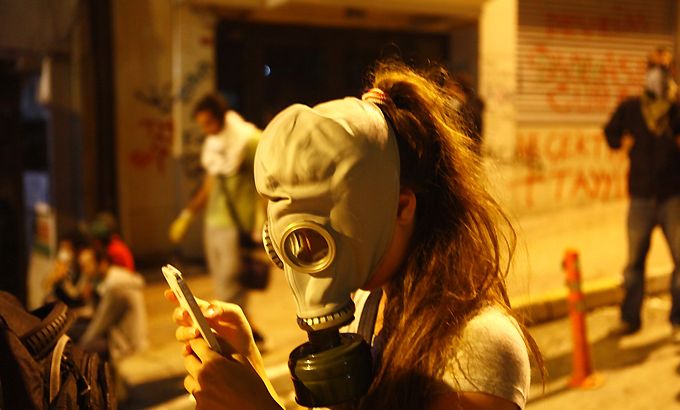Strike called to back Turkey protests
Unions call for two days of action to denounce repression, as prime minister remains defiant in face of protests.

An alliance of Turkish unions has called for a two-day strike to protest against a crackdown on anti-government protests over the last four days.
The Public Workers Unions Confederation (KESK) said: “The state terror implemented against mass protests across the country … has shown once again the enmity to democracy of the AKP government.”
The confederation, which has an estimated 240,000 members in 11 unions, said it would hold a two-day strike from Tuesday.
Mass protests have continued against the Islamic-rooted government of Prime Minister Recep Tayyip Erdogan. At least two people have died in the demonstrations.
One of the dead was reportedly shot in the head during a protest in Antakya, close to the Syrian border. The NTV television channel identified him as Abdullah Comert, 22. It was not known who opened fire.
Barricades of rubble hindered traffic in Istanbul alongside the Bosphorus waterway on Monday, blocking entry into the area around Taksim Square.
In the capital Ankara, police charged at mostly teenage demonstrators and scattered them using teargas and water cannons.
The Dogan news agency said up to 500 people were detained in Ankara on Monday, and Turkey’s Fox television reported 300 others were detained in Izmir, Turkey’s third-largest city.
‘Police abuse’
Social media was awash with reports and videos of police abuse. Turkey’s Human Rights Foundation claimed more than 1,000 protesters were subjected “to ill-treatment and torture” by police.
Despite facing the biggest challenge to his rule since he came to office in 2002, Erdogan left Turkey earlier on Monday on an official visit to Morocco, where he insisted the situation in his country was “calming down”.
He earlier rejected talk of a “Turkish Spring” uprising by Turks who accuse him of trying to impose religious reforms on the secular state, and dismissed the protesters as “vandals”, stressing that he was democratically elected.
Erdogan has blamed the protests on “extremists”, “dissidents” and the main opposition Republican People’s Party.
“The situation is now calming down … On my return from this visit, the problems will be solved,” he said in Rabat.
“The Republican People’s Party and other dissidents have a hand in these events.”
The unrest began as a local outcry against plans to redevelop Gezi Park, a rare green spot adjoining Taksim Square.
After a heavy police response it grew into wider anti-government protests in Istanbul, Ankara and other cities.
Speaking to Al Jazeera, Fadi Hakura, a Turkey analyst at the Chatham House think-tank in London, said: “I think that the prime minister has really adopted a really defiant and confrontational approach towards the protests taking place in Istanbul and across Turkey.
“He has already accused them of being extremists; he has suggested there’s a link between the protesters and foreign plotters.”